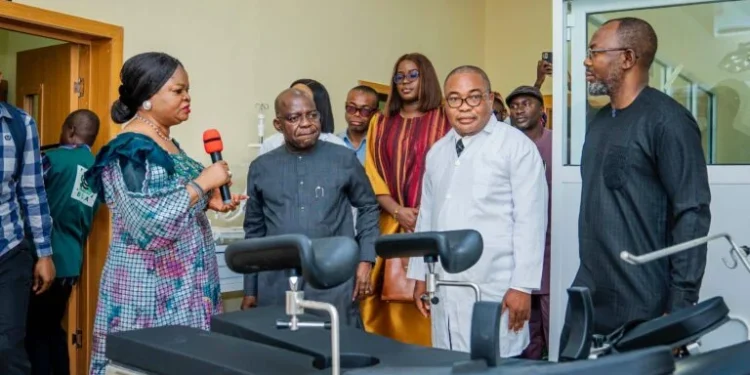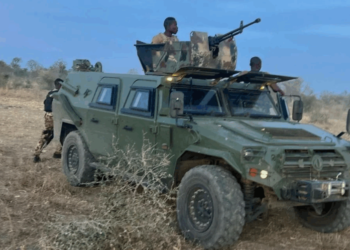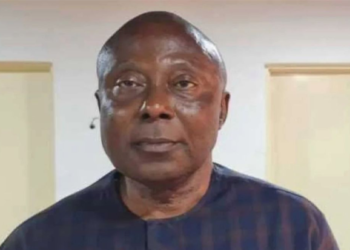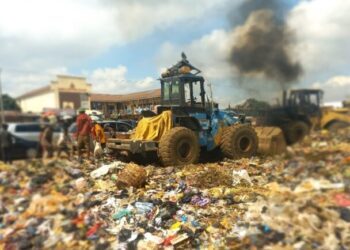Gov. Alex Otti of Abia on Wednesday inaugurated a 100-bed Sustainable Development Multipurpose Hospital in Obeaja, Ugwunagbo Local Government Area.
Speaking during the ceremony, Otti said that health occupied a major position in Abia Government’s rebuilding agenda adding that the hospital would enhance efforts made to improve access to quality healthcare.
The News Agency of Nigeria (NAN) reports that the 100-bed capacity hospital is a Federal Government’s health intervention programme executed through the implementation of Sustainable Development Goals (SDGs).
The governor commended the federal government for prioritising completion of the hospital and for renaming it from the erstwhile Mother and Child Hospital to Sustainable Development Multipurpose Hospital.
Otti also thanked the federal government for delivering and transitioning the management of the hospital to the state government.
He said: ”I will like to thank you for your commitment to see to the completion of this project.
”Also the assurance that you gave that the state government will take over the management of the hospital.”
Otti said that the state government would provide additional land for the Federal Government to build the hospital’s doctors’ quarters.
According to him, the government’s intervention programme which highlighted the importance of SDG 3, emphasises the need for government and stakeholders to strengthen the campaign against maternal and child mortality.
”It is interesting to hear from Her Excellency that our maternal mortality rate has reduced from a 1,047 that it used to be in 2020 to the 531 it was in 2022.
”If I were to quote her, she says it has gone down to 136 presently, that means we are doing well but we’re not there yet, we still have a long way to go but we have moved.
”The current numbers are not here yet but I can assure you that by the time the numbers will start coming out, we will be getting downward to actually less than 80.
”This is because Abia government is very deliberate, intentional and focused on healthcare delivery,” he said.
Otti said that the state government would provide 24 hours security and set up a facility management team that would ensure the hospital remains in good working condition.
In her remarks, the Senior Special Assistant to the President on SDGs, Mrs Adejoke Orelope-Adefulire, said that the project was conceived by the administration of the former President Muhammadu Buhari.
Orelope-Adefulire said that the facility was built to meet the healthcare needs of people of the area.
She said that similar projects had been executed across the country under the SDGs to improve the well-being of citizens.
Orelope-Adefulire described the hospital as an intervention which aligned with the Renewed Hope Agenda of the President Bola Tinubu’s administration.
She highlighted the federal government’s commitment to prioritising key interventions with multiplier effects on eradicating multidimensional poverty in the country.
In her address, the Wife of Abia Governor, Mrs Priscilla Otti, described the hospital as a testament of government’s unwavering commitment to improve healthcare in alignment with SDGs.
Mrs Otti, represented by the Wife of the Deputy Governor, Mrs Adaeze Emetu, expressed confidence that the facility would enhance access to healthcare services and improve health outcomes.
In his remark, the Transition Committee Chairman of Ugwunagbo LGA, Mr Nosike Ihesiaba, described the hospital as a welcome development.
Ihesiaba commended the state government for efforts in promoting socioeconomic growth in rural communities in all the 17 LGAs of the state.
Earlier, the Permanent Secretary, Ministry of Health, Dr Ifeyinwa Uma-Kalu, expressed the confidence that the facility would provide comprehensive care, especially for women and children who often face most challenges in healthcare systems.
Uma-Kalu described the facility as another milestone towards ensuring equitable access to healthcare for all.
Also, the Chief Executive Officer of Hospital Management Board, Dr Odochi Azubuike, commended the Federal Government for its commitment to improving the health indices of the citizenry.
Uma-Kalu said that the facility had been fully equipped to provide antenatal care, management of child diseases and general medical services.
In an interview with newsmen, the Deputy Transition Committee Chairman of Ugwunagbo LGA, Mr Kelvin Chijioke, described the facility as “a first of its kind” in the area.
Chijioke said that he was delighted over the siting of the hospital in the Ugwunagbo and the benefits accruable to the people.
He said that communities in the area would take ownership of the health facility to ensure that it fulfills its purpose optimally for the benefit of everyone it serves.(NAN











